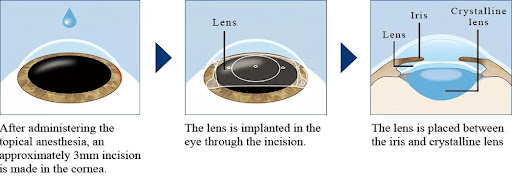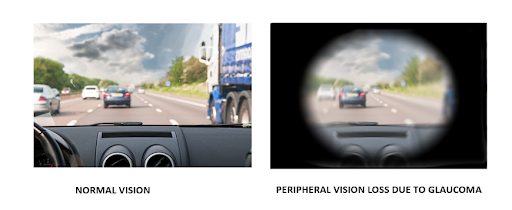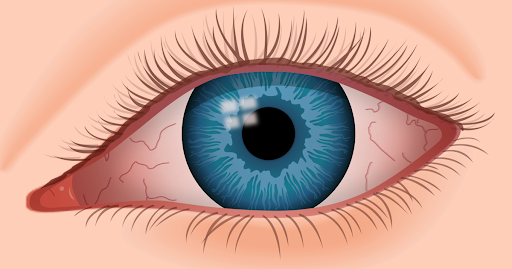Commonly known as nearsightedness, Hyperopia is a refractive error that affects an individual’s ability to see nearby objects. People with this eye condition have a shorter eyeball than usual, or the cornea has lesser curvature than required for proper focusing of light onto the retina.
Hyperopia can significantly impact individuals of all ages. If left untreated, it becomes more pronounced, making the eyes struggle to compensate, which results in symptoms like eyestrain, headaches, fatigue, and difficulty performing close-up tasks.
Fortunately, Eyeonce Eye Clinic in Gangnam, South Korea, offers various options to correct Hyperopia and restore clear vision. Our medical team, Head Director Paik Dong Won and Medical Director, Jung Sae Rom, will surely exceed your expectations with their vast knowledge, experience, and meticulous medical care
Symptoms
The early symptoms of Hyperopia (farsightedness) vary for every individual, but they generally involve difficulties with close-up vision. Some of the early signs to look out for are the following:
- Blurred vision – Nearby objects may appear unclear or fuzzy, while distant objects remain relatively clear.
- Eyestrain – People with Hyperopia strain their eyes while performing close-up tasks like reading, sewing, texting, or using the computer, leading to discomfort or fatigue.
- Headaches – Especially around the forehead or temples resulting from prolonged eye strain caused by attempting to focus on close objects.
- Eye discomfort – Farsighted individuals generally experience eye aching or discomfort, especially after prolonged near work.
- Squinting – People with Hyperopia often unconsciously squint to try to improve focus.
- Difficulty with close-up tasks – Engaging in activities that require intense visual concentration, like reading small prints, threading a needle, etc., becomes highly challenging.
It is imperative to note that these symptoms may vary depending on the degree of Hyperopia. Regular eye exams by a qualified eye professional, such as those at Eyeonce Eye Clinic, can help diagnose Hyperopia and provide appropriate treatment options to alleviate these early symptoms effectively.
Eye Exam Equipment: https://rb.gy/se3mq
Diagnosis
Here at Eyeonce Eye Clinic, our ophthalmologists diagnose Hyperopia through a comprehensive eye examination to assess the clarity of your vision and your eyes’ overall health. The diagnosis involves a series of tests which involve the following steps:
- Visual acuity test – This is where you will read letters or symbols from a distance chart. Visual acuity test will determine how well you can see objects at various distances and aids in assessing any potential refractive errors like Hyperopia.
- Refraction assessment – During this test, our eye professional at Eyeonce Eye Clinic uses a phoropter or trial frame with different lenses to determine the exact prescription needed to correct your vision and determine which lens provides the clearest vision.
- Autorefractor or retinoscopy – These devices sometimes determine your refractive error because they can quickly measure how light enters your eyes and provide a preliminary prescription.
- Pupil dilation – This is an essential process as it helps assess the health of your eyes and get a more accurate view of the internal structures. Dilated pupils allow for a better examination of the retina and other parts of the eyes.
- Visual field test – This test may be performed to evaluate your peripheral vision to ensure no abnormalities affect it.
- Evaluation of eye health – Our eye doctors use specialized equipment to examine your eyes’ overall health, including the retina, optic nerve, and blood vessels. This way, any underlying eye conditions affecting your vision will be ruled out.
Our eye care professionals at Eyeonce Eye Clinic will determine if you have Hyperopia based on the findings of these tests. They will also discuss the potential treatment options available in our clinic, such as prescription glasses, contact lenses, or other corrective measures to help address your Hyperopia.
Treatment Options
Most of the treatments for Hyperopia aim to correct the refractive error and provide clear vision at all distances. Here at Eyeonce Eye Clinic, we offer several treatment options that are tailored depending on the severity of your Hyperopia, individual preferences, and overall eye health like the following:
- Prescription glasses – These are the simplest and most common way to correct farsightedness. Convex lenses in glasses bend light rays before they reach the eyes, compensating for the shorter eyeball length and improving near vision.
- Contact lenses – They can be an excellent alternative to glasses since they have convex surfaces that refract light, enabling clear vision. Contact lenses can provide a wider field of view compared to glasses.
- Refractive surgeries – Eyeonce Eye Clinic prides itself on performing LASIK and LASEK surgeries that help address Hyperopia. These refractive surgeries reshape the cornea, changing its curvature to correct refractive error.
If you want to learn which treatment option best suits your needs, book a consultation with our expert eye care professionals at Eyeonce Eye Clinic.
Vision correction: https://rb.gy/1e6no
Why choose Eyeonce Eye Clinic Gangnam for Hyperopia treatment?
Utmost Patient Care
Our eye care professionals and staff ensure to give you your money’s worth. We guarantee you receive the best medication possible and assure you that you are guided and understood, making you feel comfortable and confident at every step.
Comprehensive Consultation
Eyeonce Eye Clinic offers comprehensive eye examinations to evaluate your condition and determine the best eye strain treatment. Our ophthalmologists take their time to cater to your questions and address your concerns, ensuring you make an informed decision about our vision correction options.
Expert Eye Doctors
Our ophthalmologists, Head Director Dr. Paik Dong Won and Medical Director Dr. Jung Sae Rom, are highly knowledgeable and adept in treating eye strain. They always use the latest techniques and technologies to ensure optimal results.
Frequently Asked Questions (FAQs)
Yes, Hyperopia can worsen over time. Visiting your eye care professional for immediate intervention and proper treatment is highly advisable to avoid worsening your condition.
Yes, especially in mild cases. Some individuals may experience Hyperopia without significant blurriness or discomfort. That is, having regular eye examinations is crucial to detect farsightedness, even if you do not perceive any visual issues. Book an appointment now!
Remember that every individual’s eyesight is unique, and it is essential to consult an eye doctor to determine the best treatment option for Hyperopia that best suits your needs
Conclusion
Hyperopia or farsightedness can have a significant impact on your life. It might be Hyperopia if you have blurry near vision, eye strain, or discomfort while performing close-up tasks. At Eyeonce Eye Clinic, we understand how bothersome Hyperopia can be for all individuals. Our eye doctors, Paik Dong Won, and Jung Sae Rom, are committed to providing exceptional care and personalized solutions for your vision needs. Book an appointment with us today!



